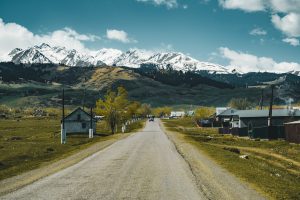On July 25, several hundred villages in Kazakhstan held elections for akims, the heads of local executive bodies.
I’ve written about the significance of local elections in the Kyrgyzstani context, and the July 25 elections in Kazakhstan are also worth our attention, though for different reasons. In Kyrgyzstan, where the political landscape is more competitive than its northern neighbor’s, local elections contribute to party consolidation. In Kazakhstan, where the Nur-Otan party has long dominated a field of curated competition, these local elections do not tell us much about the viability of opposition parties. But they do offer insight to how the regime is approaching political reform and democratization.
President Kassym-Jomart Tokayev said of the reform that paved the way for the election of akims, “This is not only a sign of sufficient maturity of our political system, but also a serious step in the democratic development of our society.” This is the first time since independence that villagers – who make up 40 percent of Kazakhstan’s population – have been able to directly choose local leadership.
On May 25, Tokayev issued a decree allowing for the direct election of akims in villages across the country. The decree was the latest step in a long, slow process of loosening the reins of local governance in Kazakhstan. Back in April 2013, then-President Nursultan Nazarbayev made village akims elected indirectly by local representative bodies, with candidates selected by district-level leaders. Before this, village akims were appointed from the top, which remains the case with akims of large cities and higher administrative units.
730 akims were up for election on July 25. 2,297 candidates threw their hat in the ring; 1,419 were independents, which is only possible in village elections (in 2018, the government revoked citizens’ right to run for their town’s maslikhat, local legislative body, without party affiliation). There were still problems with registering independent candidates, though, as reported by the Youth Information Service of Kazakhstan.
Erlan Karin, a Kazakh political scientist and advisor to Tokayev since July 2020, posted on his Telegram channel that the direct election of akims is significant because it will lead to “an influx of new people in civil service.” This, according to Karin, “open[s] up new opportunities for citizens to directly influence the development of their settlements.” It is difficult to see any novelty in state-society relations or Kazakhstan’s civil service, though, given that about 60 percent of the winners are incumbents.
Moreover, although only 38 percent of the candidates ran with a party, some 85 percent of the winners – 627 candidates – are members of the ruling party, Nur-Otan. Nur-Otan published on its Facebook page that another 65 independent candidates who won are affiliated with the party, meaning that Nur-Otan nearly made a clean sweep of village elections.
Elections alone do not make a democracy, and the results suggest that the direct election of village akims is another instance of cosmetic reform made in the name of Tokayev’s “listening state.” Just like reforms to regulations on peaceful assembly passed in June 2020, which only marginally relaxed constraints while preserving the state’s ability to restrict Kazakhstanis’ freedom of assembly, direct election of village akims looks like a major step toward democratization without actually changing the substance of local governance and political participation.
Tokayev says he’s listening and that he wants Kazakhstan to advance in its democratic development. But by retaining the power to appoint akims of cities, where the majority of Kazakhstanis live and where social movements have been concentrated, he reveals that stability yet again trumps democratic choice.













